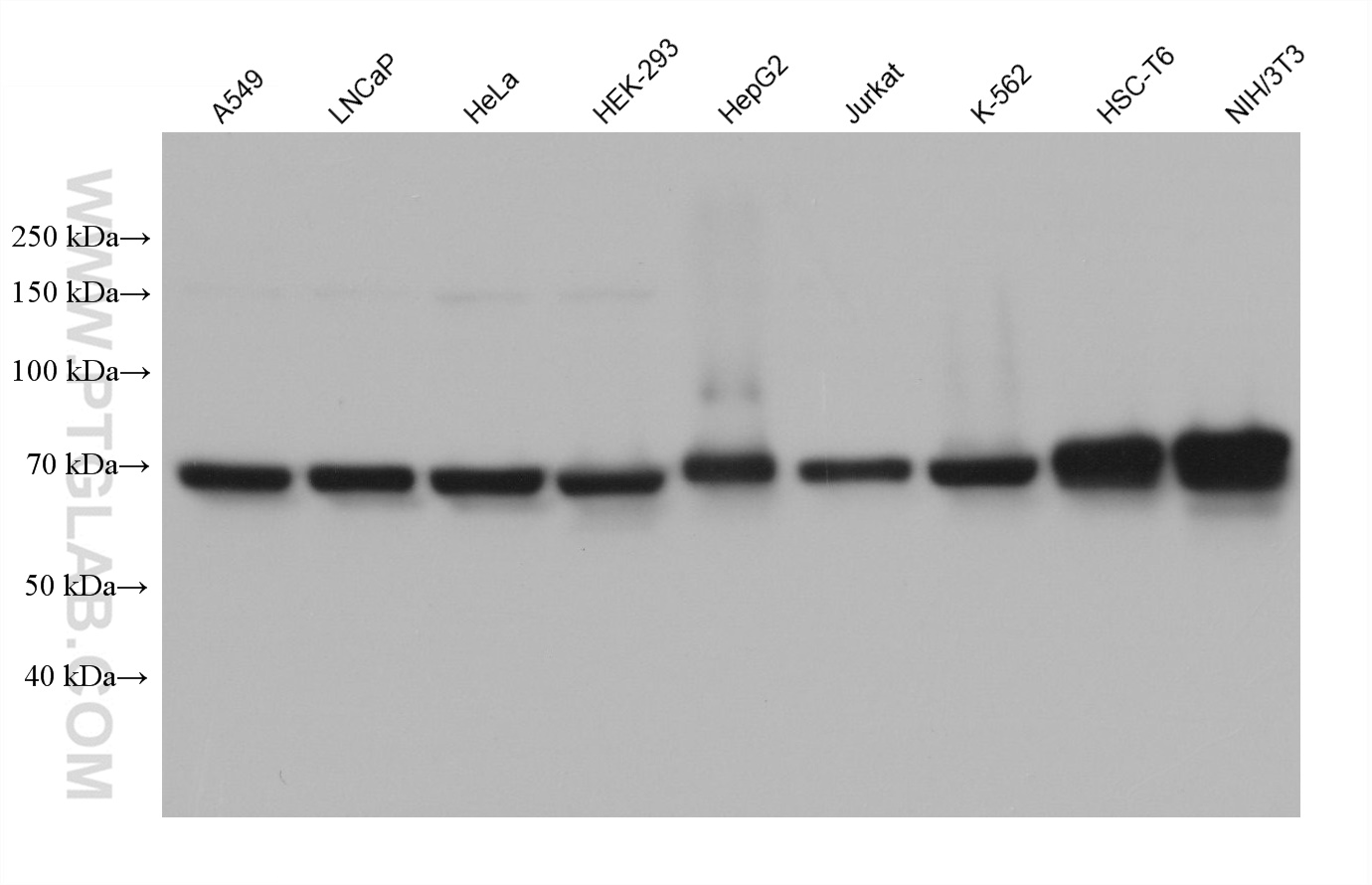验证数据展示
经过测试的应用
| Positive WB detected in | A549 cells, LNCaP cells, HeLa cells, HEK-293 cells, HepG2 cells, Jurkat cells, K-562 cells, HSC-T6 cells, NIH/3T3 cells |
推荐稀释比
| 应用 | 推荐稀释比 |
|---|---|
| Western Blot (WB) | WB : 1:2000-1:10000 |
| It is recommended that this reagent should be titrated in each testing system to obtain optimal results. | |
| Sample-dependent, Check data in validation data gallery. | |
产品信息
68520-1-Ig targets CstF-64 in WB, ELISA applications and shows reactivity with Human, Mouse, Rat samples.
| 经测试应用 | WB, ELISA Application Description |
| 经测试反应性 | Human, Mouse, Rat |
| 免疫原 | CstF-64 fusion protein Ag33751 种属同源性预测 |
| 宿主/亚型 | Mouse / IgG1 |
| 抗体类别 | Monoclonal |
| 产品类型 | Antibody |
| 全称 | cleavage stimulation factor, 3' pre-RNA, subunit 2, 64kDa |
| 别名 | CF 1 64 kDa subunit, CstF 64, CSTF 64 kDa subunit, CSTF2 |
| 计算分子量 | 61 kDa |
| 观测分子量 | 64-70 kDa |
| GenBank蛋白编号 | BC017712 |
| 基因名称 | CstF-64 |
| Gene ID (NCBI) | 1478 |
| RRID | AB_3085229 |
| 偶联类型 | Unconjugated |
| 形式 | Liquid |
| 纯化方式 | Protein G purification |
| UNIPROT ID | P33240 |
| 储存缓冲液 | PBS with 0.02% sodium azide and 50% glycerol pH 7.3. |
| 储存条件 | Store at -20°C. Stable for one year after shipment. Aliquoting is unnecessary for -20oC storage. |
背景介绍
Cleavage stimulation factor 64 kDa subunit is a protein that in humans is encoded by the CSTF2 gene. This gene encodes a nuclear protein with an RRM (RNA recognition motif) domain. The protein is a member of the cleavage stimulation factor (CSTF) complex that is involved in the 3' end cleavage and polyadenylation of pre-mRNAs. Specifically, this protein binds GU-rich elements within the 3'-untranslated region of mRNAs.
实验方案
| Product Specific Protocols | |
|---|---|
| WB protocol for CstF-64 antibody 68520-1-Ig | Download protocol |
| Standard Protocols | |
|---|---|
| Click here to view our Standard Protocols |
